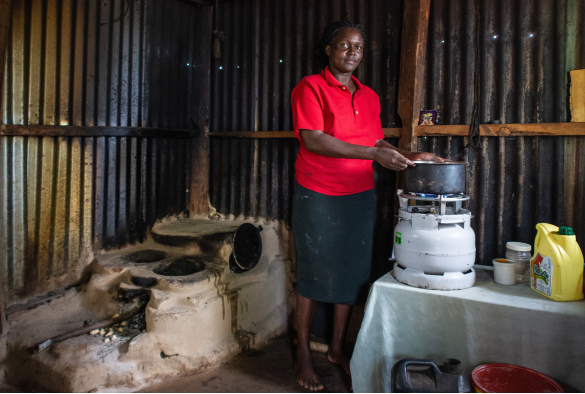Novel research scales up clean cooking options in low- and middle-income countries
Novel research involving University of Liverpool academics has shown that expanding the use of liquefied petroleum gas (LPG) and/or grid electricity to replace biomass-fuelled cooking in low- and middle-income countries (LMICs) significantly benefits human health and climate.
This crucial evidence supporting the environmental justice for scale of LPG for clean cooking in LMICs has been published by climate scientists and members of the Department of Public Health Policy and Systems Energy, Air Pollution and Health Research Group.
Their article published in Environmental Research Letters presents findings from the first ever global climate impact modelling analysis highlighting the positive climate and health impacts from scaling these clean cooking options.
Roughly one-third of the world’s population lacks access to clean cooking fuels and technologies. Cooking with biomass – such as wood and charcoal – causes over 3 million premature deaths each year through household air pollution (HAP), contributes 1–2% of climate-forcing emissions each year and is also associated with localised environmental damage and gender inequities.
The study finds that full transitions to LPG or electricity would cut cumulative emissions of greenhouse gases by 10–14%, or 2.6–3.4 gigatons of carbon dioxide equivalent (CO2e), by 2040, which is equivalent to the annual emissions of 500–900 million cars. Such changes would also slash emissions of health-damaging pollutants like particulate matter by over 99% and carbon monoxide by over 95%, reducing the risk of illness and premature death linked to exposure to HAP.
Co-authors Professor Dan Pope and Dr Elisa Puzzolo from the University of Liverpool’s Institute of Population Health highlighted the importance of this analysis.
Elisa Puzzolo said: “Whilst LPG is a fossil fuel it is an essential transitional clean cooking option for the 3 billion people that rely on polluting wood, charcoal and kerosene for household energy to address the 3.2 million lives lost each year from exposure to household air pollution.”
Dan Pope added: “Our analysis shows that concerns over scaling adoption of LPG in terms of contributions to global warming are misplaced – with little or no impact given offset emissions of black carbon and other CO2 equivalents from combustion of polluting fuels and reductions in deforestation from the unsustainable harvesting of fuel wood.”
This analysis was performed by researchers from North Carolina State University, Stockholm Environment Institute, the University of Liverpool and University of California-Berkeley.

